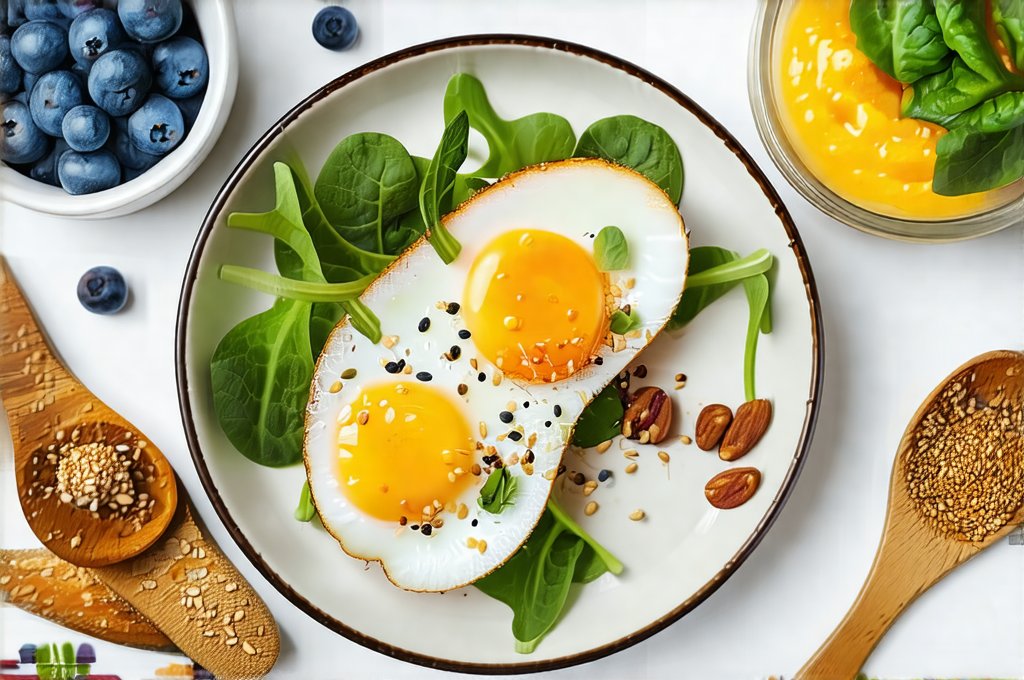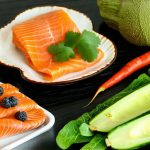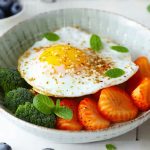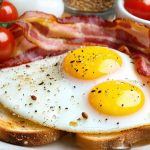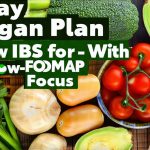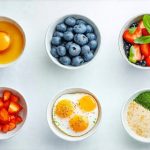Bloating is an incredibly common complaint, impacting millions daily and often disrupting lives in subtle yet significant ways. It’s not always about what we eat, but how our bodies react to it – particularly when dealing with sensitivities or digestive imbalances. Many people find relief by identifying trigger foods and adjusting their diets accordingly. A vegan lifestyle, already rich in fiber and plant-based nutrients, can be a fantastic starting point for reducing bloating, but making specific choices within that framework is key. Focusing on breakfast, the first meal of the day, sets a positive tone for digestive health, preventing discomfort before it even begins.
This article will explore how to build anti-bloating vegan breakfasts that are not only delicious and satisfying but also designed to support optimal digestion. We’ll move beyond general advice and delve into specific ingredients, preparation methods, and meal combinations known to minimize bloating and promote gut health. The goal isn’t deprivation; it’s about making informed choices that allow you to enjoy a vibrant, plant-based diet without the unwanted side effects of discomfort and distension. We’ll focus on creating breakfasts that are easily digestible, nutrient-rich, and tailored for long-lasting energy.
Understanding Bloating & Vegan Diets
Bloating often stems from several factors including gas production during digestion, water retention, food sensitivities, or even stress. In the context of a vegan diet, some common culprits include excessive consumption of cruciferous vegetables (broccoli, cauliflower), legumes (beans, lentils – though incredibly nutritious!), and certain high-FODMAP foods. FODMAPs—Fermentable Oligosaccharides, Disaccharides, Monosaccharides And Polyols—are short-chain carbohydrates that can be poorly absorbed in the small intestine, leading to fermentation by gut bacteria and subsequent gas production. It’s important to remember that everyone reacts differently to these foods. What causes bloating for one person may not affect another.
A well-planned vegan diet is inherently advantageous because it emphasizes fiber, which promotes healthy bowel movements and regular elimination – a key factor in preventing bloating. However, simply being vegan doesn’t guarantee bloat-free digestion. The type of fiber matters; soluble fiber (found in oats, apples) draws water into the digestive tract, softening stool and promoting regularity, while insoluble fiber (found in wheat bran, vegetables) adds bulk. Balancing both is crucial. Moreover, mindful food combinations can significantly reduce bloating. For example, pairing legumes with easily digestible grains or spices like ginger and turmeric can aid digestion and minimize gas production. Understanding your individual needs may require a deeper dive into resources such as breakfast ideas for chronic constipation relief.
The key to a comfortable vegan diet isn’t about eliminating entire food groups, but rather understanding your body’s individual tolerances and making adjustments accordingly. Keeping a food diary to track what you eat and how you feel is an excellent starting point for identifying potential triggers. It allows you to pinpoint specific foods that cause discomfort and modify your diet to avoid them.
Building the Anti-Bloat Breakfast Blueprint
The foundation of any anti-bloating breakfast starts with easily digestible ingredients. Oats, particularly rolled oats (as opposed to instant), are a fantastic choice due to their soluble fiber content. They’re gentle on the stomach and provide sustained energy. Similarly, gluten-free grains like quinoa or amaranth can be incorporated for variety. Fruits, especially low-FODMAP options such as blueberries, strawberries, oranges, and bananas (in moderation), offer essential vitamins, minerals, and antioxidants without triggering excessive gas production.
Protein is vital for satiety and preventing energy crashes. Vegan protein sources that are generally well-tolerated include chia seeds, hemp seeds, and a small amount of nut butter (almond or cashew butter are often easier to digest than peanut butter). Avoid large quantities of soy products if you suspect sensitivity. Plant-based milk alternatives can be used instead of dairy, but choose wisely; oat milk and almond milk tend to be better tolerated by those prone to bloating than coconut milk. Finally, incorporating digestive aids like ginger, turmeric, or peppermint tea can further support healthy digestion and reduce discomfort. Remember portion control – even healthy foods can cause bloating if consumed in excess. For a more comprehensive approach, consider exploring an easy meal plan for a flat stomach.
Boosting Digestibility with Simple Swaps
- Oats over Wheat: Replace wheat-based cereals or toast with a comforting bowl of oatmeal.
- Blueberries instead of Apples: While apples are nutritious, they contain sorbitol, a FODMAP that can cause gas. Blueberries offer similar antioxidants without the same digestive impact.
- Almond Butter over Peanut Butter: Almond butter is often easier to digest than peanut butter, particularly for those with sensitive stomachs.
- Ginger Tea alongside Breakfast: Sipping ginger tea before or during breakfast helps stimulate digestion and reduce bloating.
The Power of Prebiotics & Probiotics
Prebiotics are types of fiber that feed the beneficial bacteria in your gut, promoting a healthy microbiome. Foods like bananas (in moderation), oats, and flaxseeds are excellent sources of prebiotics. However, introducing prebiotic-rich foods too quickly can initially cause more gas; start slowly and gradually increase intake.
Probiotics, on the other hand, are the beneficial bacteria themselves. While not a food source in the traditional sense, you can incorporate probiotic-rich fermented vegan foods like sauerkraut (ensure it’s vegan – some contain honey) or kombucha (again, check for vegan certification). These support gut health and improve digestion.
It’s important to note that probiotics are strain-specific, meaning different strains offer different benefits. Consider consulting with a healthcare professional to determine if probiotic supplementation is right for you and which strains might be most beneficial based on your individual needs. A healthy gut microbiome is crucial for minimizing bloating and supporting overall digestive health. If you’re seeking more information about how diet affects GERD, consider managing GERD while following a vegan diet.
Hydration & Mindful Eating
Don’t underestimate the power of hydration! Drinking enough water throughout the day helps keep things moving through your digestive system and prevents constipation, a major contributor to bloating. Aim for at least eight glasses of water daily, and consider sipping warm lemon water in the morning to stimulate digestion. Equally important is mindful eating. Take your time while eating, chew your food thoroughly, and avoid distractions like television or phones. This allows your body to properly digest food and reduces the likelihood of swallowing excess air, which can contribute to bloating. Eating slowly also gives your brain time to register fullness, preventing overeating. For more targeted support, you could explore a 7-day vegan plan for IBS with a low-FODMAP focus. When choosing grains, consider the best grains for IBS, bloating and constipation relief. You can also explore anti-bloating snacks that actually work to supplement your diet. Finally, you may want to consider building a GERD-safe pantry for long term relief.

